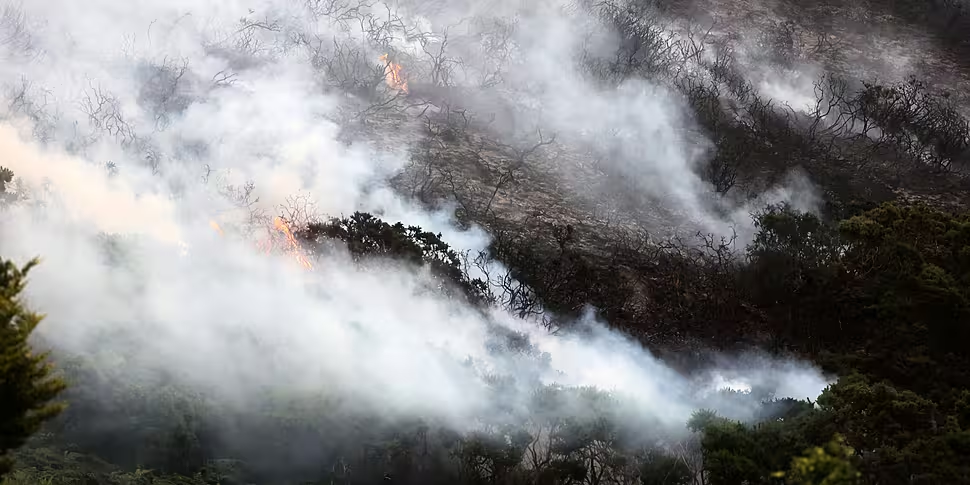There have been calls to impose stricter penalties on those responsible for lighting wildfires.
It comes after a gorse fire in Killiney Hill was brought under control yesterday, with two firefighters receiving minor injuries trying to subdue it.
Speaking on Newstalk Breakfast this morning, Environmentalist John Gibbons said that whether the perpetrator intended to start the fire or not should be taken into account if harsher penalties are to apply.
In Ireland, deliberately setting a fire to vegetation is illegal between March 1st and August 31st.
Gibbons said the current penalties are “far too low, considering the damage they can do”.
Earlier this month, a forest fire spread in Crone Wood and Carrick Mountain in County Wicklow, where people regularly walk and hike.
Disposable barbeques
This year, the UK has banned disposable barbecues in an attempt to reduce the number of fires spreading accidentally.
There is no indication that Irish law will follow suit.
Gibbons said: “A disposable barbecue is essentially like if you were to design something to start a fire - not intentionally, an accidental fire.”
"It’s charcoal sitting in foil and then oftentimes after the barbeque they’re simply left smouldering there.”
“If you’re thinking of going out and about and enjoying the countryside or enjoying the wildlife, like up in Killiney Hill, don’t bring a disposable barbeque with you, it’s simply too risky.”
Wildlife
Gibbons said that the fires can be “devastating” for wildlife.
“Many wildfires happen on peatlands and that causes the peatlands to dry out.”
“Even after the fire has been doused, the underlying soil is damaged and it’s no longer capable of supporting the vast invertebrate life that actually in turn supports all the wildlife.”
Due to rising temperatures in Ireland, Gibbons said the country will need to pivot towards the tactics of hotter countries when tackling fires.
Main image shows a gorse fire on Howth Head last year. Image: Sam Boal/RollingNews









